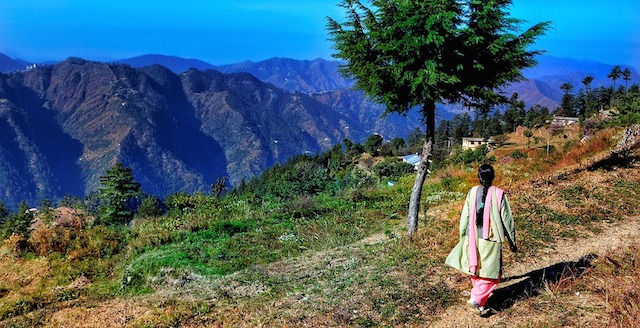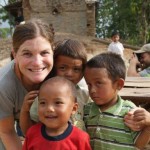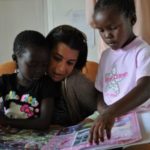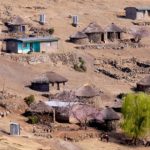Finding Happiness and Laughter in a Migrant Camp

Before I started my current NGO job in a Mumbai migrant camp, I worked with another established group called Mumbai Mobile Creches (MMC). MMC is an NGO that caters to people who, because they are migrant workers, are invisible to both their home government and to Mumbai’s. The basic premise of MMC’s work is to provide facilities to the children of those working on construction sites, setting up centres that are baby nurseries, preschools and schools all at once, and often all located in one room. The type of space varies because it’s space donated by the builder, whose interests are not completely aligned with those of the workers.
I was to teach juggling (a skill I learned in my life before living in India—a whole other story!) to the children at the Veera Desai centre near Jogeshwari station. Before beginning to teach, however, I wanted to just spend time with the kids to get to know them and the space that they called home–a basement in the unfinished building that their parents’ were building. In order to access this space, I had to cross over piles of rebar, shredded rock and clay.
Because they are migrant workers, [they] are invisible to both their home government and to Mumbai‘s.
In the basement, kids of different ages and colours and castes and creeds were scattered all over a concrete ground, playing with brightly-coloured plastic toys. Even a foreigner like myself could tell that these children were not from the same place: some were as dark as night, while others were nearly as pale as me. There was a range of dark to lighter hair, curls and pin-straight strands, different types of earrings and fake jewellery and religious ornaments. It was a meeting of representatives from nearly every state of India: as far as Assam and Bihar, and as near as other localities of Maharashtra. Kids followed the tide with their parents, moving to wherever work could be found.
In a corner, there were babies and small toddlers. Little ones sat on a mat, playing with blocks and other toys designed for stimulating young minds.
Two infants slept in slings, a row of them tied between two iron rods. Another one crawled off the mat onto the concrete, and I thought about how unfair it was that something as soft and perfect as a baby should ever come in contact with a substance like concrete, so rough and contrary. I watched all of this and observed.
There is virtually nothing for a child to do on a construction site, and many, many things for them not to do. What can be done, though, if they’re born in these spaces, and only ever live on these sites? These kids, instead of playing with stones and dangerous materials, come to the centre every day, where they learn and play and eat. They were proud to use the bathroom in their schoolroom with dignity. On the same compound where they lived, there was no latrine at all, just a designated area for human waste.
She smiled and laughed as though she didn’t live in dirt and dust with a family patched together from scraps of humanity, just a group of people who needed each other.
One of the babies in the slings woke up, little arms stirring the air. She began to mew, like a kitten. I lifted her out, and we sat on the mat together until her mother arrived.
Her mother was 16-years-old and from Kolkata, West Bengal. She was married in a brief ceremony to a man older than she. She conceived and gave birth to a baby. Because the baby was a girl, the husband left his 15-year-old bride with her family.
The girl had named her child Khushi, which means happiness. Khushi, despite bringing only shame upon the girl, now an unmarried teenager with a baby. While I was there, Khushi ate a piece of peanut chikki like the other toddlers, with her seven-month-old gums. The young mom explained that Khushi already ate solid food because she couldn’t be breastfed all day.
Finding Happiness and Laughter in a Migrant Camp
“I work outside of the compound cleaning houses. So I can only offer milk to her in the morning and during the night.” She spoke quietly in Hindi, the only language we could communicate in. This young girl who was a woman, I guess, covered her chest with a dupatta and looked at the ground as she spoke to me… daring to look up and smile when I smiled at her. She was thin: her body was only keeping what it needed to feed the baby and to wash dishes every day. When she left with her daughter, she hunched her shoulders and ignored the leering eyes of the construction workers.
Another baby crawled over to me and tried to stand. Hassya was six months old, and the size of a Canadian newborn. She asserted herself in the way of an older child. She smiled and laughed as though she didn’t live in dirt and dust with a family patched together from scraps of humanity, just a group of people who needed each other. Hassya means laughter.
Khushi and Hassya: in a place where there should be none, there they were.
Photo by Pixabay.








